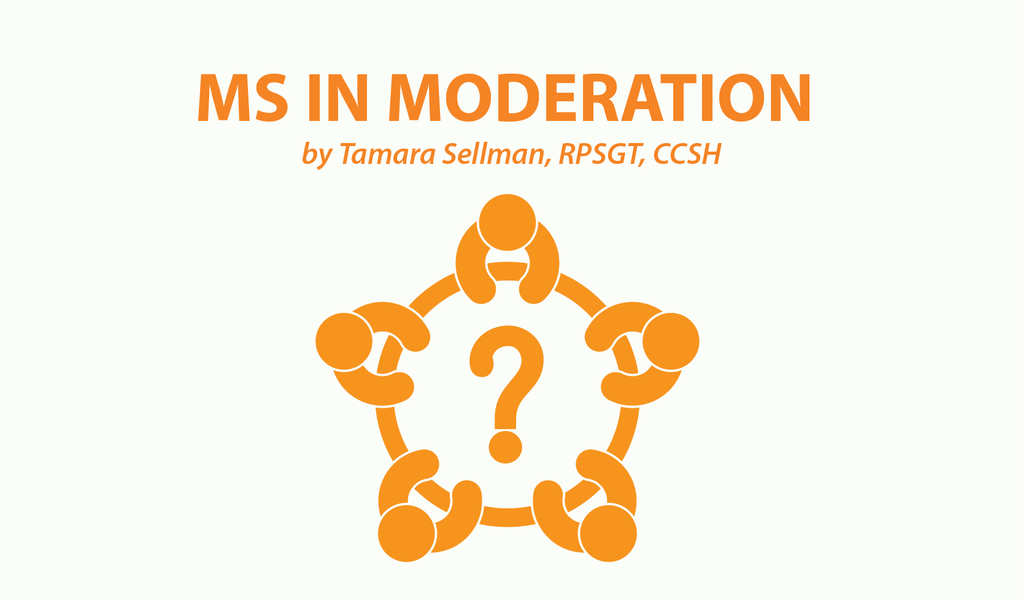The MS Alphabet: Neurogenic Bladder, Neuropsychologist and More Words That Start With ‘N’
Written by |


(Editor’s note: Tamara Sellman continues her occasional series on the MS alphabet with this column referencing terms starting with the letter “N.”)
Symptoms of MS
Neurogenic bladder
Many people with MS experience problems with the bladder.
A neurogenic bladder occurs when signals to and from the brain, through the spinal cord, are disrupted, blocked, or distorted because of damage to the central nervous system.
Problems with the communication between the brain and the bladder can lead to chronic bladder dysfunction, which can cause frequent, urgent, even painful urination, as well as problems with incontinence (loss of control) or retention (when the bladder is full but hesitates to void).
People with MS who experience frequent urinary tract infections (UTIs) often have neurogenic bladder problems that cause urinary retention.
MS abbreviations
NMO (Neuromyelitis Optica)
Also known as Devic’s syndrome, neuromyelitis optica is a form of inflammatory demyelinating disease, which resembles, or mimics, MS in several ways.
NMO symptoms include an acute case of optic neuritis (inflammation of the optic nerve, usually in both eyes), and severe and acute inflammation of the spinal cord.
Other symptoms of NMO include numbness, problems with the muscular system (weakness, lack of coordination, loss of tone or spasms), and dysfunction among other organs such as the bladder, the bowel and the reproductive organs. Damage to the spinal cord also can cause dysfunction in the lower half of the body, including the legs.
Doctors continue to debate whether NMO is a separate disease from MS. In the meantime, NMO is treated more generally as part of the family of demyelinating autoimmune disorders.
Common MS terms
Neuropsychologist
This kind of healthcare practitioner specializes in a kind of psychology that observes the relationship between the structure of the brain and one’s thinking and behavior.
Because MS can have an impact on cognition (thought processes), emotions and behavior, it can be useful to visit a neuropsychologist if you are experiencing problems with memory, language, speech or unexplained changes in mood.
If a person with MS is troubled by cognitive or behavioral symptoms that might make it hard to continue to remain employed, a neuropsychologist can help estimate one’s level of disability through an extensive assessment.
The biology of MS
Neuron
The human brain is thought to be composed of 100 billion neurons. Neurons are the basic building blocks of the central nervous system. These nerve cells carry electrical impulses to and from the brain to choreograph every single body function.
Each neuron has a cell body (soma), and two components (dendrites and axons) that makes it possible for electrical signals to be delivered across the brain’s neural network and to and from the body.
The conductive and waxy substance coating each neuron is called myelin. In MS, it is this myelin coating, or sheath, that is the target of attack by the immune system.
Damage to myelin can distort, damage or even destroy the functionality of the neuron inside, making it difficult or even impossible for certain signals to be sent and received.
MS treatments
Natalizumab
Known by its brand name as Tysabri, natalizumab is a form of monoclonal antibody used to treat relapsing forms of MS and Crohn’s disease. The medication works by targeting and destroying certain kinds of cells in the brain to protect the central nervous system.
Natalizumab is administered by an IV injection every four weeks, usually under the supervision of a physician. It can take at least one hour to complete the injection. Those who use this medication are observed during injections to ensure they do not experience an allergic response to it.
Patients who have been prescribed natalizumab must have frequent blood tests to check for hidden infections as a precautionary measure while taking this medication.
***
Note: Multiple Sclerosis News Today is strictly a news and information website about the disease. It does not provide medical advice, diagnosis, or treatment. This content is not intended to be a substitute for professional medical advice, diagnosis, or treatment. Always seek the advice of your physician or other qualified health provider with any questions you may have regarding a medical condition. Never disregard professional medical advice or delay in seeking it because of something you have read on this website. The opinions expressed in this column are not those of Multiple Sclerosis News Today or its parent company, Bionews Services, and are intended to spark discussion about issues pertaining to multiple sclerosis.



Lelainia Lloyd
Hi. NMO has been determined to be a completely separate disease from MS.the two are also mutually exclusive, meaning you cannot have both. It is no longer being referred to as Devic’s Disease, but as NMOSD-Neuromyelitis spectrum disorder. Unlike MS, NMO left untreated is fatal-it can kill you by attacking the section of the spinal cord that controls breathing. An NMO attack is a medical emergency as it can strike suddenly and hard.
For more information please visit http://guthyjacksonfoundation.org
or download the free NMO app for Android or Apple by searching “NMO”.
I am an NMO patient, educator & advocate.
Tamara Sellman
Thanks for your input. As you can see in the original article, NMO was included because it's considered one of the "mimics" of MS.
Tamara
Lelainia Lloyd
Yes it can be mistaken for MS, but it’s important to clarify that there is no longer a debate over whether NMO is a separate disease from MS. It is. The mechanism of disease and damage is different from MS. NMO research has proven this definitively.
Jean Mancil
What do you think about NMO and Stem Cell treatment.
Jim
Would like to say thank you for explaining the neurogenic bladder. Good to know it has such a name.
Tamara Sellman
My pleasure, happy to help. I think it helps us all to know these aren't just things we imagine, but real concerns with real medical names.
TKS
Grace Mitchell
Tamara, Lelania is correct. The research community has known for years now that NMO is it's own unique disease. It affects the optic nerve, the spinal cord, and the brain stem/brain. While the research community previously thought that it spared the brain, they have known for some time now that such is not the case. Unfortunately, NMO attacks have the potential to cause severe and permanent disability, and unfortunately can often be life threatening. We have lost many members of our online NMO community as a direct result of acute brainstem attacks that have compromised the respiratory system.
While MS and NMO have similar symptoms in the beginning of the NMO disease course, the two diseases diverge widely with the passage of time. Also, it is known that the treatments for MS, particularly the interferons, can make NMO much worse. Referring to NMO as an MS mimic does a disservice to the NMO patient community. Too many general neurologists are still viewing NMO though the MS lens, and often to the great detriment of the patient.
Grace Mitchell
NMO patient and advocate.
Tamara Sellman
Grace, nobody here is arguing your points. I take my cues from recent research, and invite you to approach them with your concerns. I can only rely on published literature from medical experts, and if they aren't always in agreement about diagnoses or markers or criteria, that is not on me. As a healthcare journalist I have to take my cues from the information that is available. And if some neurologists still disagree on categorizing NMO and MS, that's a problem for them to address, perhaps with your urging. But I'm just the messenger.
Below are quite a few recent articles which show how complicated it is to differentiate between NMO and MS. Again, I did not say in my post that NMO is a form of MS, but rather that, like Lupus or Lyme Disease, shares many common traits, making it very difficult to differentiate. That is what it means by "MS mimic." Or maybe MS mimics NMOSD? Is it that important to quibble over a term that generally means "biosimilar?"
What's more important to understand is that we have still so much to learn about neurological disorders, and yes, doctors aren't always up to date on the latest research. It is not to say that NMO is less than MS or that it doesn't matter, it simply says that NMO, MS and at least a dozen very serious illnesses are too biosimilar to differentiate outright, which makes them all, initially, diagnoses of elimination. Yes, there are tests, but no, not all doctors ask for these tests or even know about them, and not all insurance companies even pay for them. There are many elements at work here beyond our control.
Which is why it is included in my alphabet list, to raise awareness that is is a very similar disease course that may end up falling under the MS diagnoses until more information can differentiate it as something different. That's not my design, but the way medical researchers categorize what they know. And they are still learning more and have yet even more to learn.
I wish it were more clear for us as patients and for physicians and researchers. It can be a long, frustrating, painful and dangerous journey for some because of it. One of my best friends has been going through years of symptoms and only recently was granted a confirmed diagnosis. Meanwhile, her health has taken huge hits on this long wait. Another friend, Deanna Kirkpatrick of MS-Unplugged fame, was also diagnosed with MS, then "undiagnosed" and given a more general "demyelinating disease" diagnosis because her situation was distinctly different, and yet they still aren't certain it's not something else entirely. I am not sure where she is on her diagnosis journey, but it has been years of struggle.
NMO is a terrible disease, just as much as MS, Lupus, Lyme and all the other biosimilar neurological diseases are. People can die from complications of all of these diseases and treatments are a guessing game for each as well. I'm not sure why the umbrage on your part regarding the similarities of MS and NMO. If the general neurologists are still seeing NMO via the MS lens, that's not on me. I suggest you take it up with them.
Again, you said it yourself, neurological changes across time or space are one of the only ways that doctors can know to differentiate NMO from MS. MS itself has to pass the "time and space" test itself as part of the MacDonald criteria. I don't wish to do a disservice to the NMO patient community, I only wish to share that these two diseases are extremely similar and may require a lot of tests and patience before the right diagnosis is arrived upon.
Tamara
FOR MORE INFORMATION:
Neuromyelitis Optica: Overview/December 15, 2017/Mayo Clinic
https://www.mayoclinic.org/diseases-conditions/neuromyelitis-optica/symptoms-causes/syc-20375652
Neuromyelitis Optica: Diagnosis/December 15, 2017/Mayo Clinic
https://www.mayoclinic.org/diseases-conditions/neuromyelitis-optica/diagnosis-treatment/drc-20375655
Multiple sclerosis NMO/October 25, 2017/Journal of the Neurological Sciences
http://www.jns-journal.com/article/S0022-510X(17)30585-3/fulltext?cc=y=
Q & A about NMO with Brian Weinshenker, M.D./April 25, 2017/Guthy-Jackson Charitable Foundation
https://guthyjacksonfoundation.org/q-a-about-nmo-with-brian-weinshenker-m-d/
13 Conditions Commonly Mistaken for Multiple Sclerosis/September 13, 2016/Everyday Health
https://www.everydayhealth.com/multiple-sclerosis/symptoms/conditions-commonly-mistaken-multiple-sclerosis/
Other Conditions to Rule Out/updated in 2017/National Multiple Sclerosis Society
https://www.nationalmssociety.org/Symptoms-Diagnosis/Other-Conditions-to-Rule-Out
Differential diagnosis of neuromyelitis optica spectrum disorders/July 2017/Therapeutic Advances in Neurological Disorders
https://www.ncbi.nlm.nih.gov/pmc/articles/PMC5476332/
Longitudinally extensive myelitis in MS mimicking neuromyelitis optica/May 2017/American Academy of Neurology
https://www.ncbi.nlm.nih.gov/pmc/articles/PMC5310205/
Brian Mahood
Dear Sir/Madam,
I have attempting to access the ‘MS Alphabet’ , so that I can access the data which is available through it.
I may be totally computer illiterate, but I have found this exceedingly difficult which is frustrating +++ and would be grateful if you could give me the appropriate email address so that I may achieve it.
Yours sincerely,
Brian Mahood, MA MB FRACP